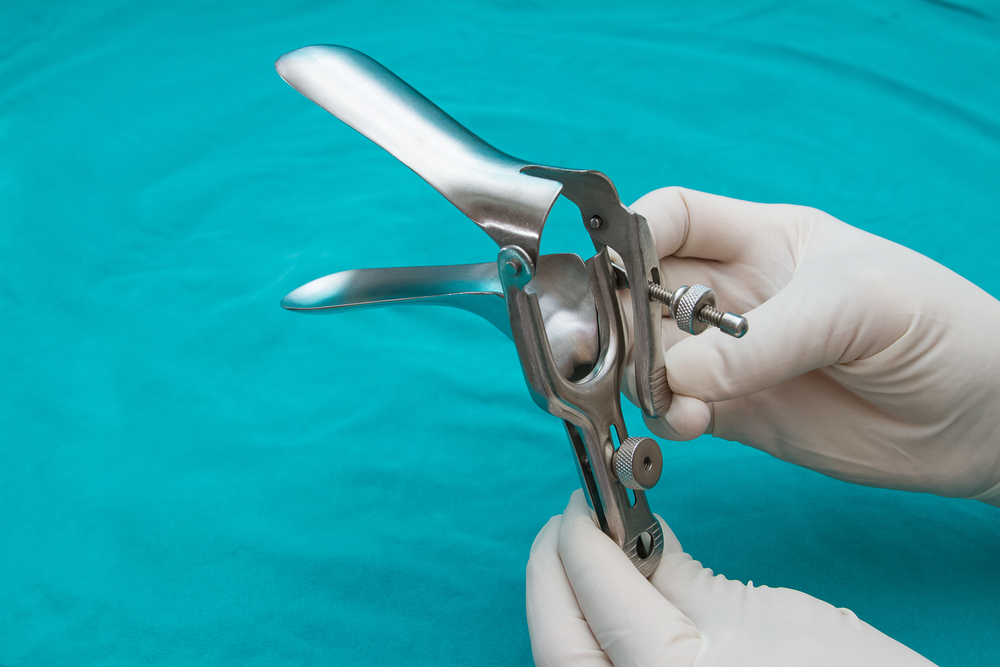Why You Should Ask Your OB GYN About Menopause Care
Published on 08/07/20
When should you ask about menopause care? Normally between the ages of 45 and 55 a woman will stop menstruating for about twelve consecutive months. This means that she can no longer become pregnant naturally.
This is called… Menopause.
The age that menopause starts varies with every woman. It can develop before 45 and after 55 for some and cause uncomfortable symptoms on a day-to-day basis.
These symptoms don’t necessarily need to be treated, nor does every woman experience it the same. However, speaking to your gynecologist about medical treatment is fairly common and practical for comfortability because:
- Some women gain weight
- Some women suffer from anxiety
- Some women develop UTIs
- Some women experience depression
- Some women deal with vaginal dryness
And more…
Why deal with these symptoms when they can be treated?
Read on to find out why you should ask your OB GYN about treating your menopause symptoms.
Menopause symptoms can start as early as four years before a woman’s last period and continue up to four more years after their last period. [that is EIGHT years of symptoms]
And a small percentage of women experience menopause for TEN years before she actually begins menopause.
The average age for menopause is 51 but can begin as early as two years prior. A lot of factors play into when a woman may start menopause. Factors such as reproductive health, ovaries, genetics, and ethnicity.
There are three stages that determine where a woman might be on her menopause – journey – we’ll say.
Perimenopause
Menopause
Postmenopause
Perimenopause is the phase in which a woman’s period starts to become irregular. Where it may be late or skip months altogether and the flow may change. Menopause when a woman hasn’t menstruated for an entire year. And Postmenopause refers to how long menopause has occurred.
Menopause is a natural process that occurs in a woman’s body when the ovaries age and hormones dwindle.
The body produces lower levels of hormones such as:
- Estrogen
- Progesterone
- Testosterone
- Follicle-stimulating hormones (FSH)
- Luteinizing hormone (LH)
In some, more serious cases, menopause can be induced or the removal of the ovaries are an option, usually suggested because of an injury.
Blood tests are commonly used to determine and confirm if a woman is going through menopause. Those include tests such as:
- Kidney function tests
- Liver function
- Blood lipid profile
- Testosterone
- Progesterone
- Prolactin
- Estradiol
- Chorionic gonadotropin (hCG tests)
All depending on your medical history and your symptoms. Blood tests may be ordered, if symptoms aren’t enough to diagnose menopause.
Here Are Common Menopause Symptoms You May Experience
Mood Changes
- Because a woman’s period is extremely hormone-based, the fluctuation of a missed period or heavier periods can affect their mood. Most women describe the feeling of being “out of control”.
- Emotions like anxiety, fatigue, irritability and sadness are not uncommon to women going through menopause.
Insomnia
Urinary Incontinence
- An involuntary loss of urine
Night Sweats
- Hot flashes that occur at night
Sexual Discomfort
- Menopause contributes to changes in sexual function. This can lead to a decrease in ovarian hormone production.
- Vaginal dryness
- Lack of sexual functions
- Reduced sex drive
And additional side effects…
Headaches
Sore breasts
Racing heart
UTIs
Stiff Joints
Osteoporosis
Hair loss or thinning
Increased hair growth
Brain fog
Weight gain
Anxiety
Reduced muscle mass
Less full breasts
Lack of memory
Treatments For Common Menopause Symptoms
If your symptoms are severe and affecting your daily quality of life, you may need treatment. Many women go through hormone replacement therapy. However, other medications could be prescribed to treat more specific menopause symptoms. Additionally, there are other ways to reduce minor symptoms through home remedies and lifestyle changes.
Menopausal Hormone Therapy / Menopausal Replacement Therapy
During menopause your body stops making higher levels of necessary hormones like estrogen and progesterone. Hormone therapy can replace some of the hormones lost artificially.
This, in turn, helps with common menopausal symptoms like hot flashes and weight gain.
This could be in prescription medicine form… or topical form.
A topical form or vaginal cream can also be used to treat hormones as a hormone therapy. This type of medicine can be used to help relieve symptoms like vaginal dryness but not other symptoms like hot flashes. Talk to your doctor to determine which medication might be right for you and your specific symptoms.
Specific medications can also be used. Specific medications such as, topical minoxidil for hair loss, anti dandruff shampoos, non hormonal vaginal moisturizers, sleep medications for insomnia, and a variety of medicines like calcitonin for postmenstrual osteoporosis.
Natural and Home Remedies
There are at-home remedies that may also help manage specific symptoms. Lifestyle changes and alternative treatments can help minor-to-moderate menopause symptoms.
We always hear about diet and exercise being a healthy way to manage anything. When it comes to menopause, the truth reigns the same.
Exercising daily can help promote a better night’s sleep, increase your energy and mood levels. As well as improve your general well-being from a day-to-day.
Practicing relaxation techniques like yoga and meditation can help.
Eating the right diet, with the right amount of vitamins and minerals. Foods high in vitamin D and magnesium can help with deficiencies like osteoporosis. And eliminating alcohol and smoking can avoid making symptoms worse.
Natural supplements can also help limit menopause symptoms.
- Soy
- Flax seed
- Melatonin
- Vitamin E
- Isoflavones
Reasons You Might Consider Avoiding Hormone Replacement Therapy
Certain conditions may mean avoiding hormone replacement therapy and gravitating to a more natural approach.
These conditions could be:
- Blood Clots
- Pregnancy
- Breast or Uterine/Endometrial Cancer
- Stroke
- Heart or Liver Disease
- Heart Attack
Check With Your Doctor If…
You are concerned or have concerns about more severe menopause symptoms. Whether you’re perimenopausal, menopausal, or postmenopausal, you can weigh out the pros and cons with a professional. And get the best suggested choices based on your symptoms and history.
Call Our Doctors at Rosh Maternal & Fetal Medicine in NYC
Gynecologic services at Rosh Maternal & Fetal Medicine include providing comprehensive diagnosis and therapy for many conditions in-house. As a result, you can get quick answers and timely treatment when you visit your local Manhattan OBGYN.
Talk to our team by phone or book an appointment online to get started. Call one of our six convenient NYC locations or schedule a video consultation online today. Come visit your NYC OBGYN.




